schott 2023 impact report
Victory Stories
THE NATIONAL OPPORTUNITY
TO LEARN (OTL) NETWORK

Alliance for Quality Education of New York
Grantee organizations in the OTL Network lead key campaigns that illuminate structural inequities in public education and in the larger socioeconomic environment that create barriers to dynamic and liberatory educational experiences.
Whether it is advocating for the equitable distribution of financial and other resources for public schools, resisting book bans, addressing unfair school assessment and accountability practices, or advocating for more counselors and stopping the over-policing of public schools, OTL Network organizations have ushered in important advancements in public education policy and practice.
HEAL TOGETHER
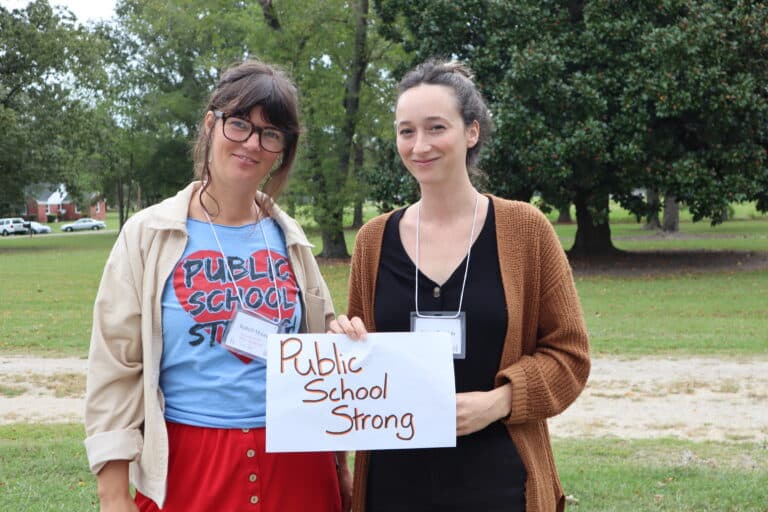
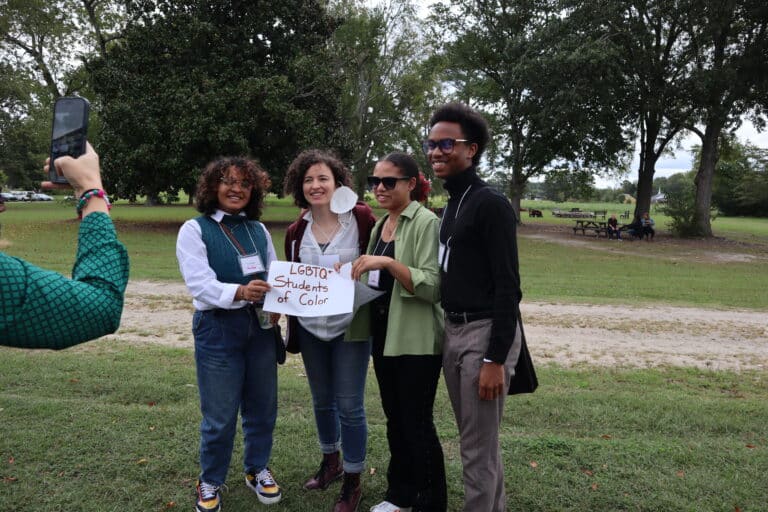
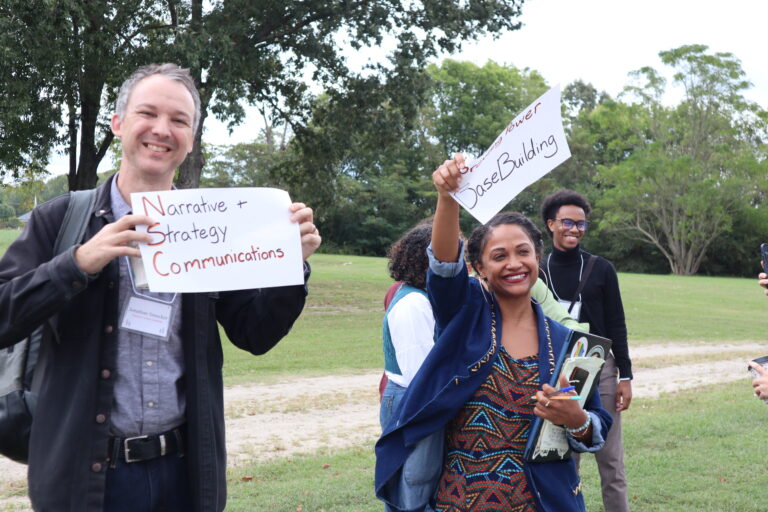
Breakout sessions from the 2023 HEAL Convening in Whitakers, NC.
Narrative Strategy: Co-founder and Executive Director of Popular Comms Institute Jonathan Matthew Smucker and Lead Trainer at The Education Justice Research and Organizing Collaborative (EJ-ROC) Maria Bautista
Public School Strong: Isabell Moore – Down Home NC and HEAL Together NC (right) Lucy Russell – Public School Strong, Wilson County
LGBTQ+ Students of Color: Georgia Youth Justice Coalition – Nia Batra, Georgia Youth Justice Coalition, H.E.A.L. Together – Student Organizer Ana Mercado, Georgia Youth Justice Coalition – Ava Bussey, Georgia Youth Justice Coalition – Austin Dixon.
* in order from left to right
This is no surprise to Schott. Schools play a uniquely powerful and unifying role in communities. They link immediate local priorities with state and federal issues, motivating popular participation in politics. For these reasons, a path to saving and strengthening our democracy runs directly through our public schools.
Schott leverages its philanthropic role to catalyze and accelerate student and parent organizers who are successfully advancing culturally responsive curriculum, inclusive policies, mental health support and equitable funding in communities across the country.
Long Term Investment Case Study: Massachusetts
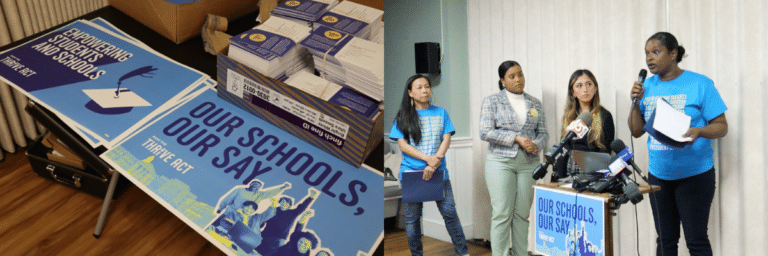
MEJA and allies produced materials for passing the THRIVE Act in Massachusetts.
A good example of this movement investment can be found in the Massachusetts Education Justice Alliance (MEJA), formed in 2015. MEJA is a coalition of community groups, activist organizations and labor unions joining forces in an unprecedented level of cooperation to defend and strengthen public schools across the commonwealth. In a state where advocacy can be fractured by issue and geography, MEJA members committed to working through the difficult organizational and relational conversations to build a coalition strong enough to meet the demands of the present.
MEJA has grown to coalition tables in seven regions to advocate for equitable resources and democratic control of our schools — critical to winning victories at the state level in an era of federal setbacks.
MEJA’s organizers and advocates won $3.5B annually public education support – the biggest increase in decades.
SPOTLIGHT
OTL Policy Commission
The OTL Policy Commission aims to bridge the gap between federal policy advocacy and the authentic voices of community. The 15 organizations (national and local ) that make up the Commission have aligned on shared principles and priorities that form the basis for specific and detailed federal policy recommendations.
Fair Share Amendment (2022)
The amendment will generate $2 billion each year for public schools and transit. Schott grantee partners — including MEJA, Massachusetts Community Action Network, the Massachusetts Voter Table and MassBudget — were pivotal to this victory, more than six years in the making.
Student Opportunity Act (2019)
This bill committed $1.5 billion per year in new aid to public schools, with a special focus on equity, so schools and communities that need these resources the most will get the most.
Leveraging Dollars To Build Power in North Carolina
For the last 20 years, public schools in North Carolina have been rapidly resegregating. The recent expansion of school vouchers has pushed this process one step closer, draining vital funds from public schools and redirecting significant resources to private institutions. Schott works with philanthropic and grassroots partners across the state to secure funding, and support grantees advocating for the fully funded, equitable public education all students in North Carolina deserve.
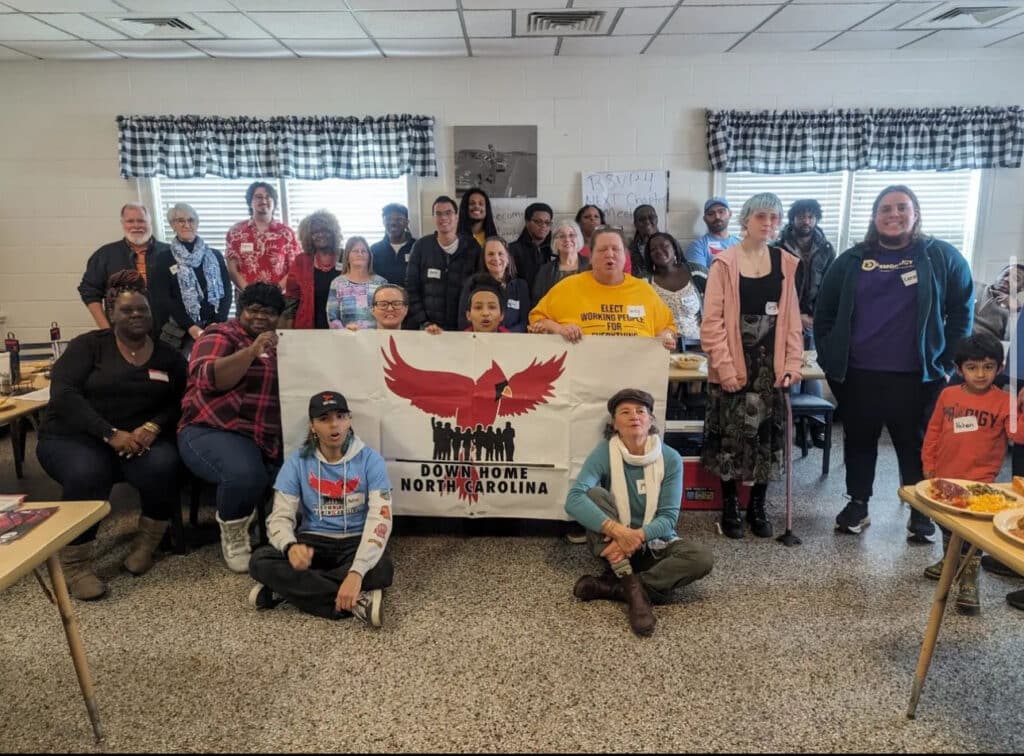
Down Home North Carolina activists welcome a new chapter in Pitt County to support their growing movement of rural power.
In the Spring of 2023, we began having conversations with grassroots partners in North Carolina specifically the Education Justice Alliance, Center for Racial Equity in Education (CREED), and We Are Down Home – in response to the general assembly’s decision to lift the income cap on private school vouchers to expand them in North Carolina.
During that same month, Governor Roy Cooper of NC declared a public state of emergency regarding public education.
SPOTLIGHT
Leveraging Dollars For Student Success Systems
Schott is among nine organizations who jointly created the National GRAD Partnership; the initiative seeks to partner with schools, districts, and organizations to evolve the use of the evidence-based Student Success Systems.”
Schott’s partnership role is to ensure authentic community voice in these strategic innovations. Nine Schott OTL grantees are funded ambassador organizations, advocating for systems re-designs, advising the experts, and participating in local focus groups.
The results of 2023 school board elections revealed the strong support for inclusive and accurate public education in communities across the country.
“We saw that as an opportunity to mobilize philanthropy to move resources in support for the fight against private school voucher expansion in the state,” said Mike Woodward, Schott’s Southern Regional Program Officer, South.
Building new philanthropic relationships, Schott pooled and leveraged resources from Mary Reynolds Babcock Foundation, The Dogwood Health Trust, the John Rex Endowment and the Child Trust Foundation to support grantee partners in the state. This provided an opportunity for state-based funders to collaborate for greater impact.
